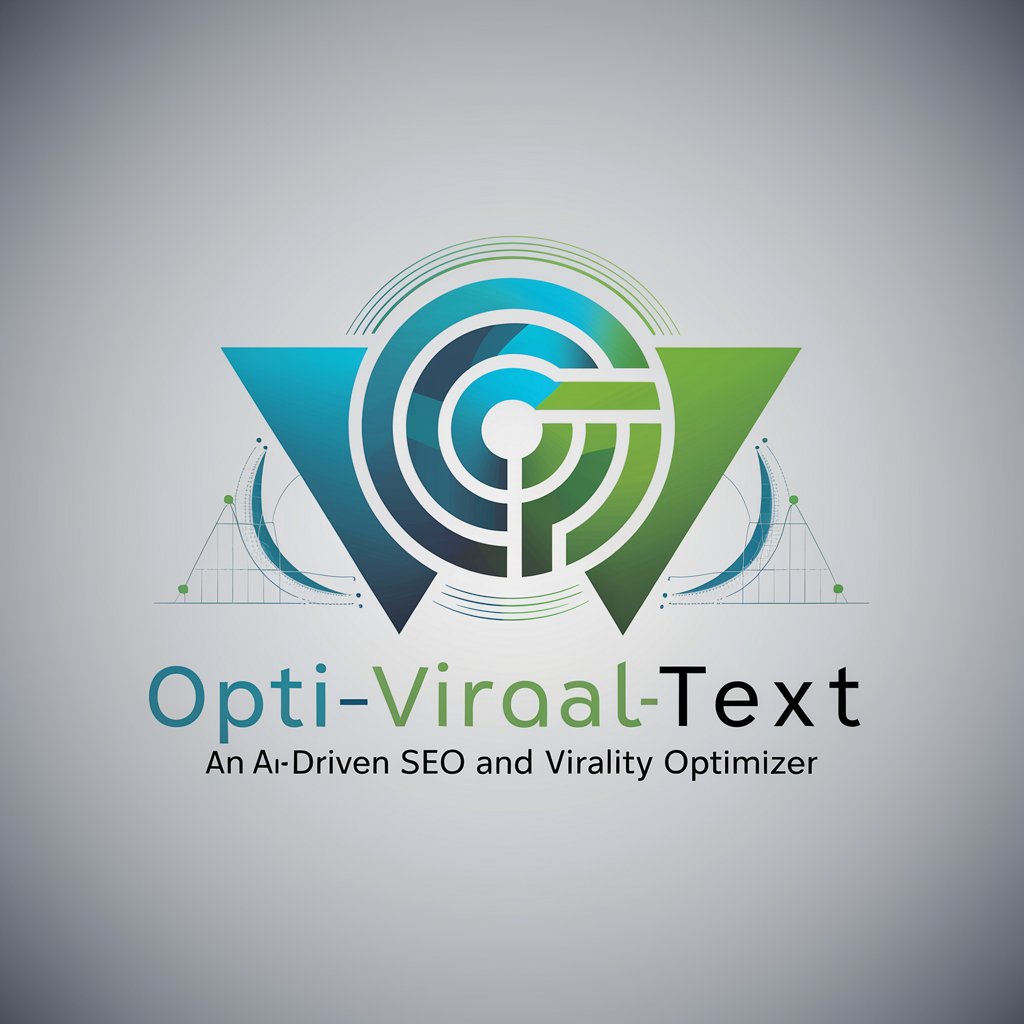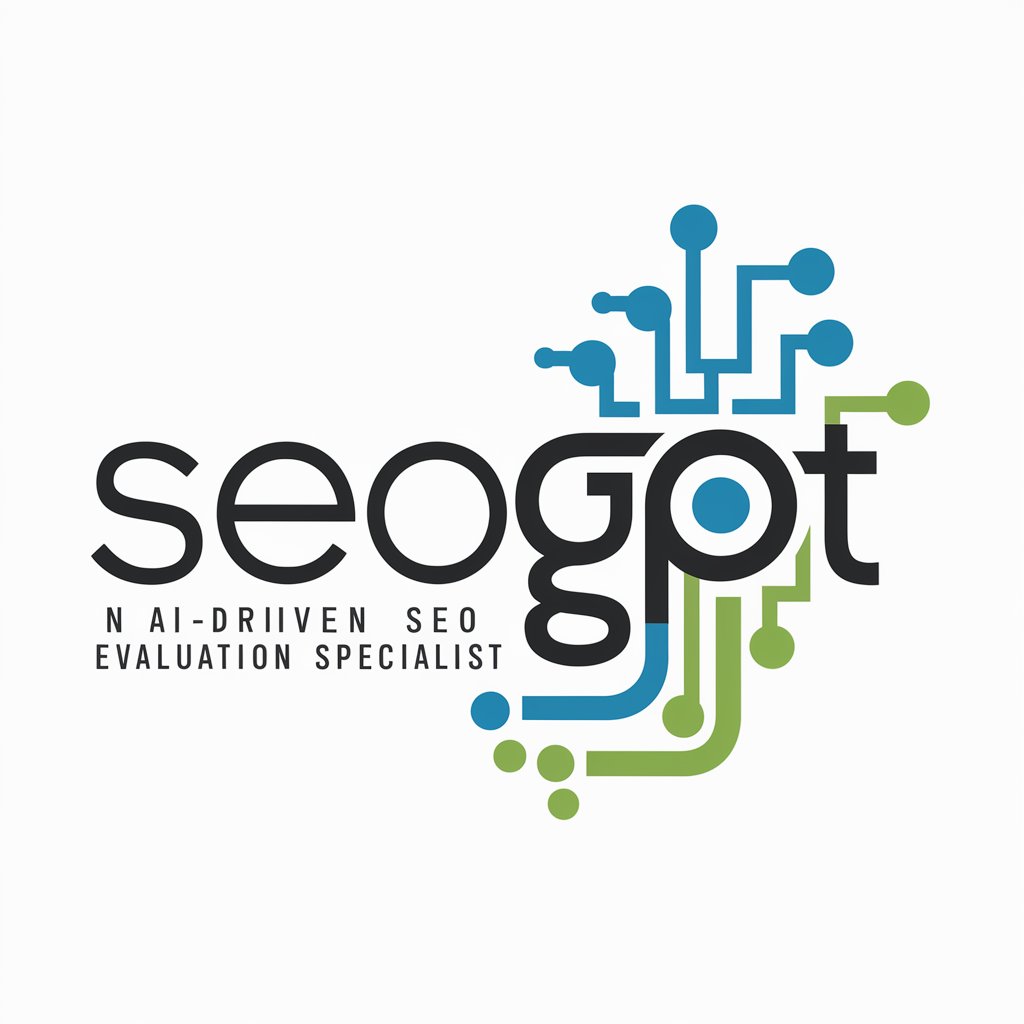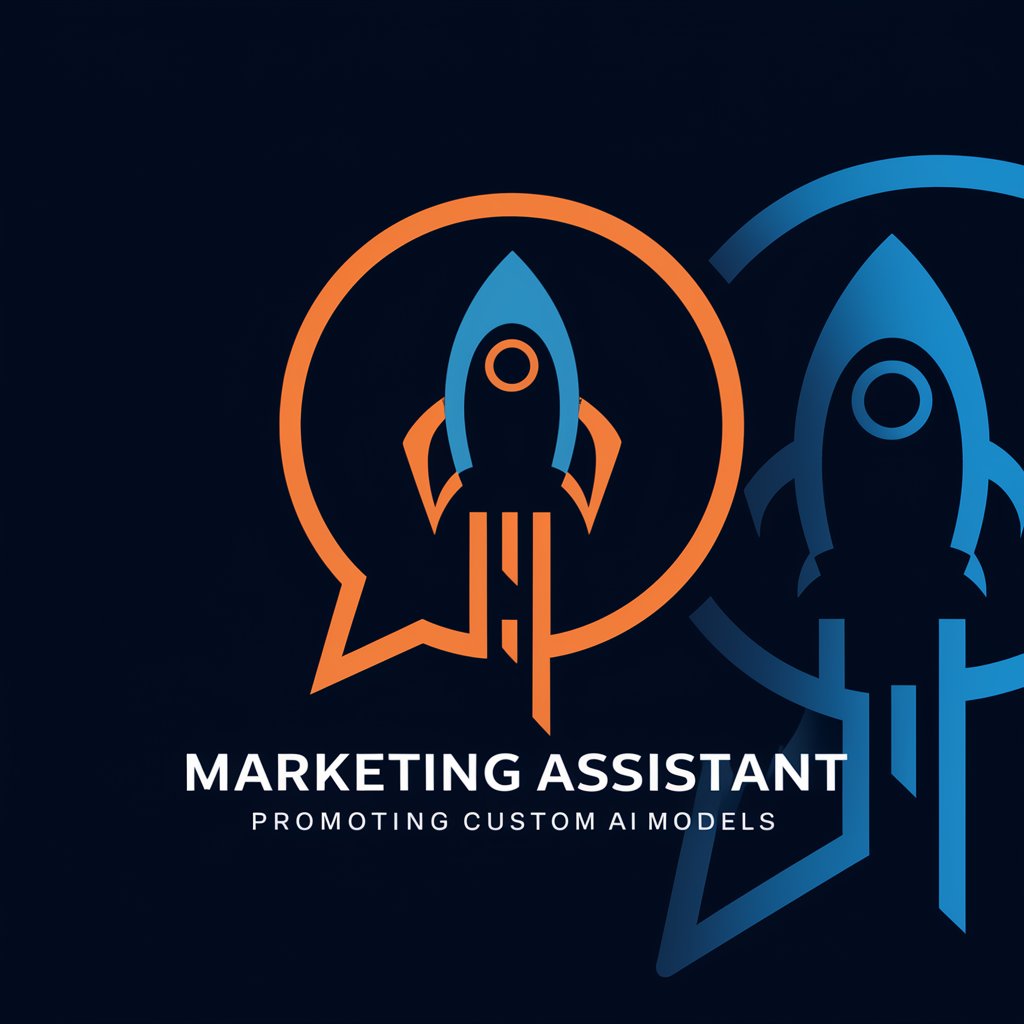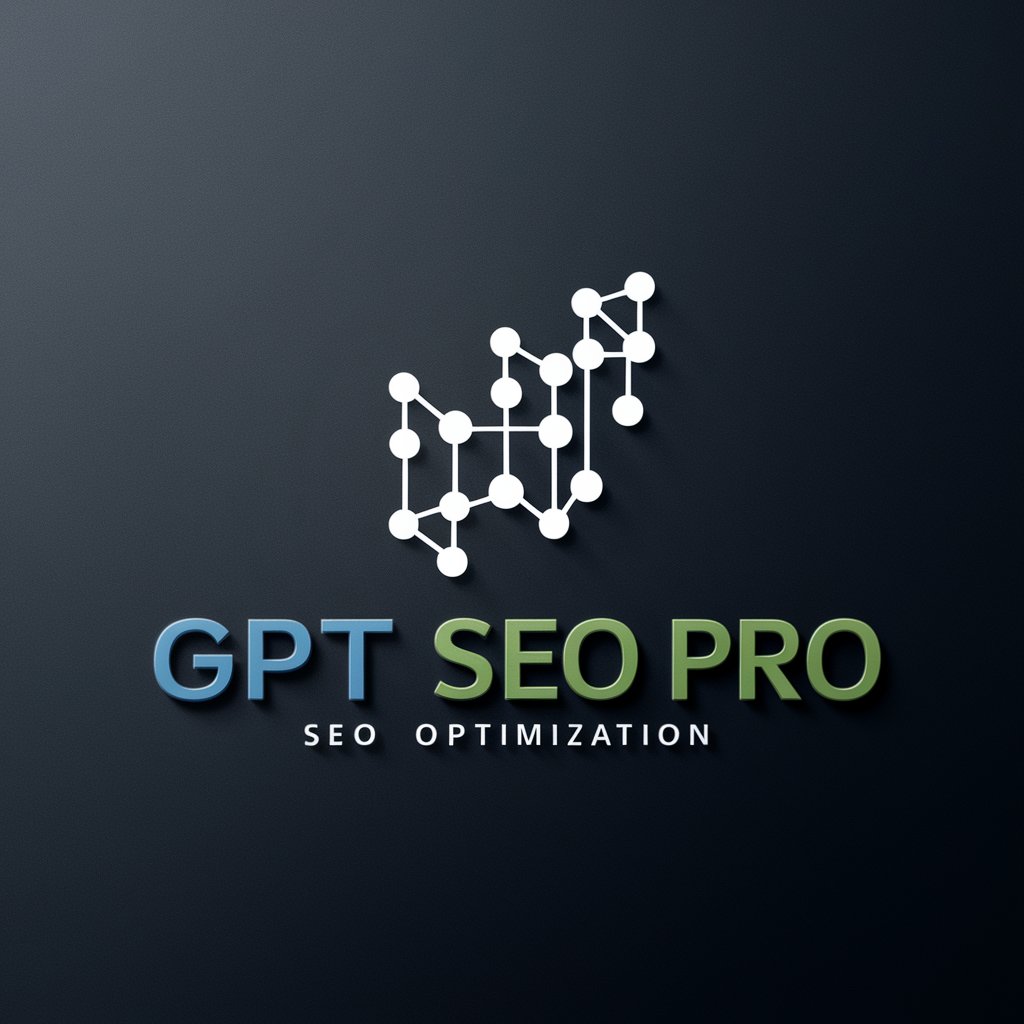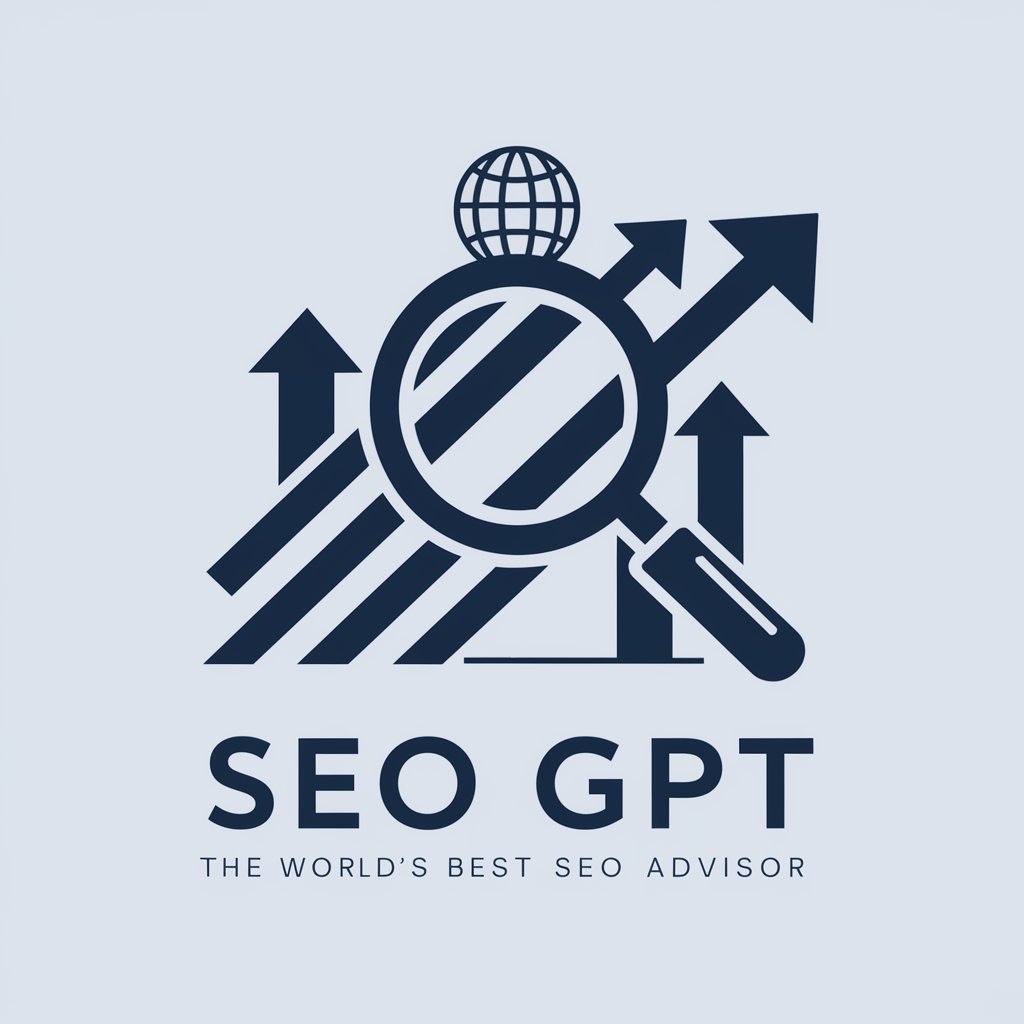
SEO-GPT - SEO Content Optimization
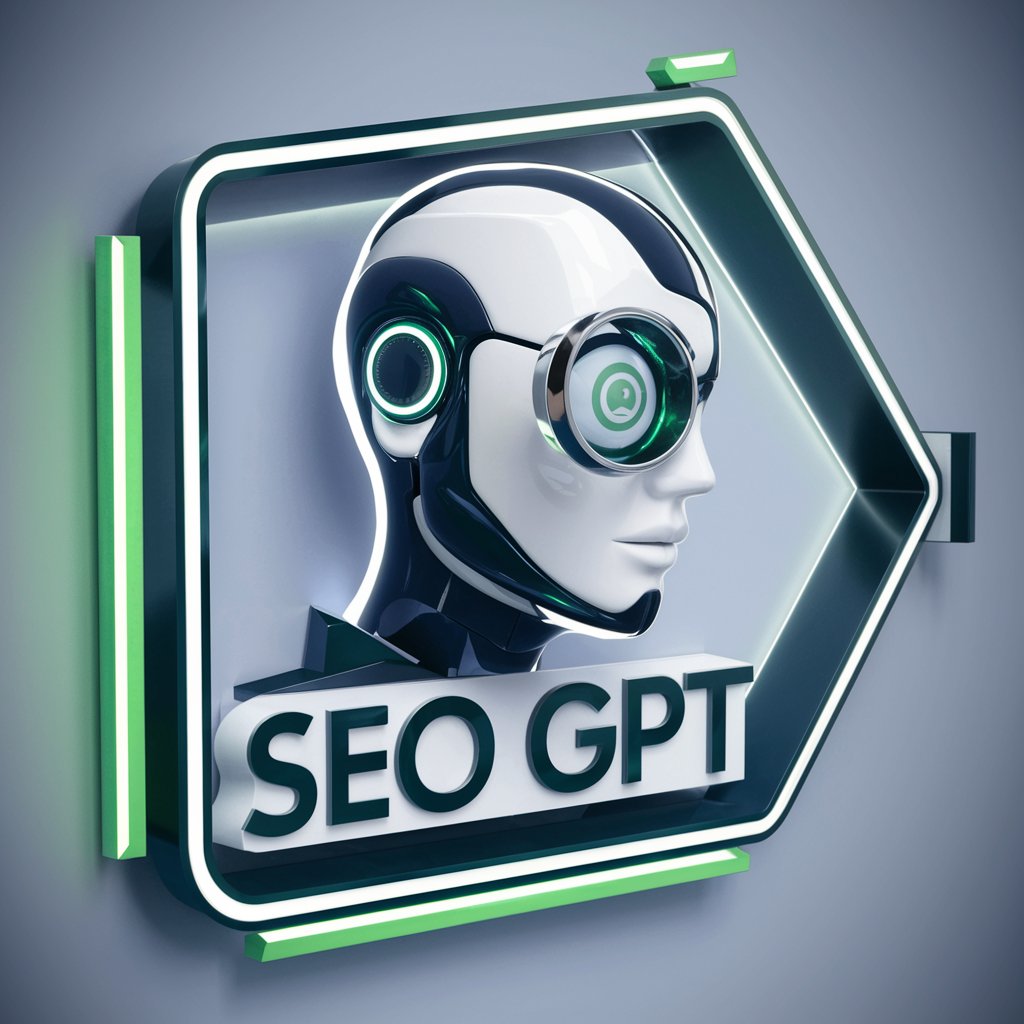
Welcome! I'm here to optimize your content for top SEO performance.
Empower Your Content with AI
Optimize the website content for better search engine visibility by focusing on...
Enhance the SEO of this article by improving keyword usage, meta descriptions, and...
To improve the search ranking of this webpage, consider updating...
Boost the SEO performance of this content by targeting relevant keywords, optimizing headers, and...
Get Embed Code
Overview of SEO-GPT: Enhancing Website Content for Search Engine Optimization
SEO-GPT is a specialized artificial intelligence tool designed to assist in optimizing website content to improve its visibility and ranking on search engines. My primary role is to provide guidance and recommendations to enhance the effectiveness of digital content from an SEO perspective. I assist with keyword integration, structuring content to be more readable for search engines, and generating SEO-friendly metadata. An example scenario is a business owner seeking to improve their local search rankings for a bakery. SEO-GPT could analyze their website content, suggest relevant, high-search-volume keywords like 'best chocolate cake' or 'fresh pastries near me', and guide the restructuring of web page titles, meta descriptions, and content to align with these keywords. Powered by ChatGPT-4o。

Core Functions of SEO-GPT for Optimal Content Strategy
Keyword Optimization
Example
For a tech blog discussing emerging technologies, I might suggest incorporating phrases like 'innovative tech trends 2024' or 'AI breakthroughs' to attract more relevant traffic.
Scenario
Identifying and integrating keywords that match the user's search intent and business niche, enhancing the content's search engine rankings.
Metadata Creation
Example
Creating a meta description for a new product page that reads 'Discover our eco-friendly backpacks designed for durability and style. Shop now for exclusive offers!'
Scenario
Generating concise and compelling metadata that improves click-through rates from search engine results pages.
Content Structure Analysis
Example
Advising a finance advisory firm to break down complex information about investment strategies into subheadings, bullet points, and shorter paragraphs to improve readability and SEO.
Scenario
Optimizing the format and structure of web content to make it more accessible to search engines and readers, enhancing user engagement and retention.
Target Audience for SEO-GPT: Who Benefits the Most?
Content Marketers and SEO Specialists
These professionals use SEO-GPT to streamline their workflow, ensuring that all content is optimized before publication. This includes integrating targeted keywords, optimizing meta tags, and structuring content to engage both search engines and readers.
Small Business Owners
Small business owners benefit by using SEO-GPT to improve their online visibility without the need for deep technical SEO knowledge. This helps them attract more organic traffic and compete in their market effectively.
Digital Marketing Agencies
Agencies utilize SEO-GPT to enhance their client’s content across various industries. This tool helps them deliver better results in search engine rankings for their clients, making it a valuable asset in their SEO toolkit.

How to Use SEO-GPT: A Step-by-Step Guide
1
Visit yeschat.ai to try SEO-GPT for free without needing to log in or subscribe to ChatGPT Plus.
2
Identify the specific SEO needs of your website or content. This could include keyword optimization, improving content readability, or enhancing meta descriptions.
3
Select the type of content you want to optimize. SEO-GPT can assist with web pages, blogs, product descriptions, and more.
4
Input your existing content into the tool. Provide SEO-GPT with details about your target audience, desired keywords, and any other relevant information.
5
Review and apply the optimization suggestions provided by SEO-GPT. Test the changes with SEO tools to track improvements in search engine rankings.
Try other advanced and practical GPTs
Dining Hall Menu Designer
Smart, AI-powered culinary design.

Hall of Fame Sports Guide
Insightful Journey Through Sports Legends

Hall of Light Amiga Expert
Unleash the power of Amiga gaming history.

Sequence Diagrams
Visualizing interactions with AI

MJ Storyboard Sequence Assistant
Craft Cinematic Storyboards with AI

Sequence Riddle Challenge
Sharpen Your Mind with AI Puzzles
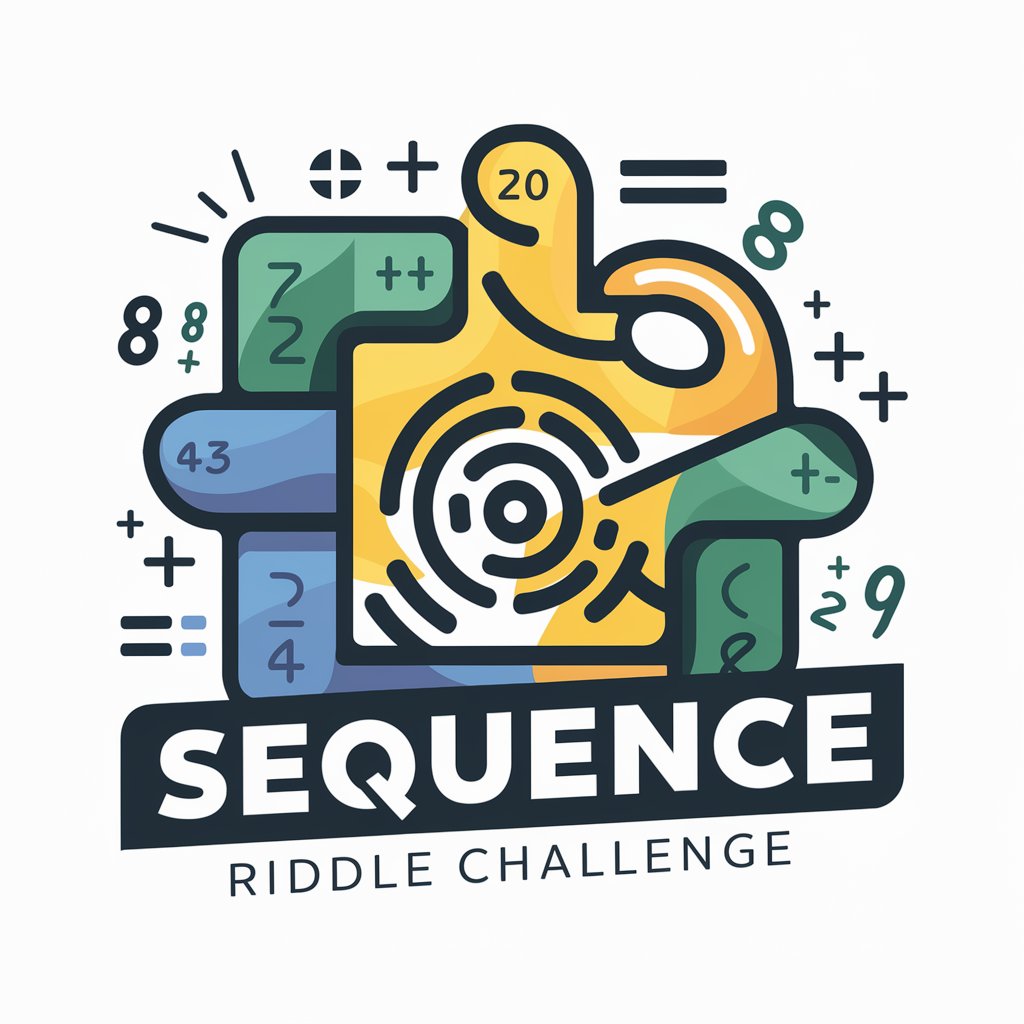
Azure ML Expert
Elevating Azure projects with AI expertise
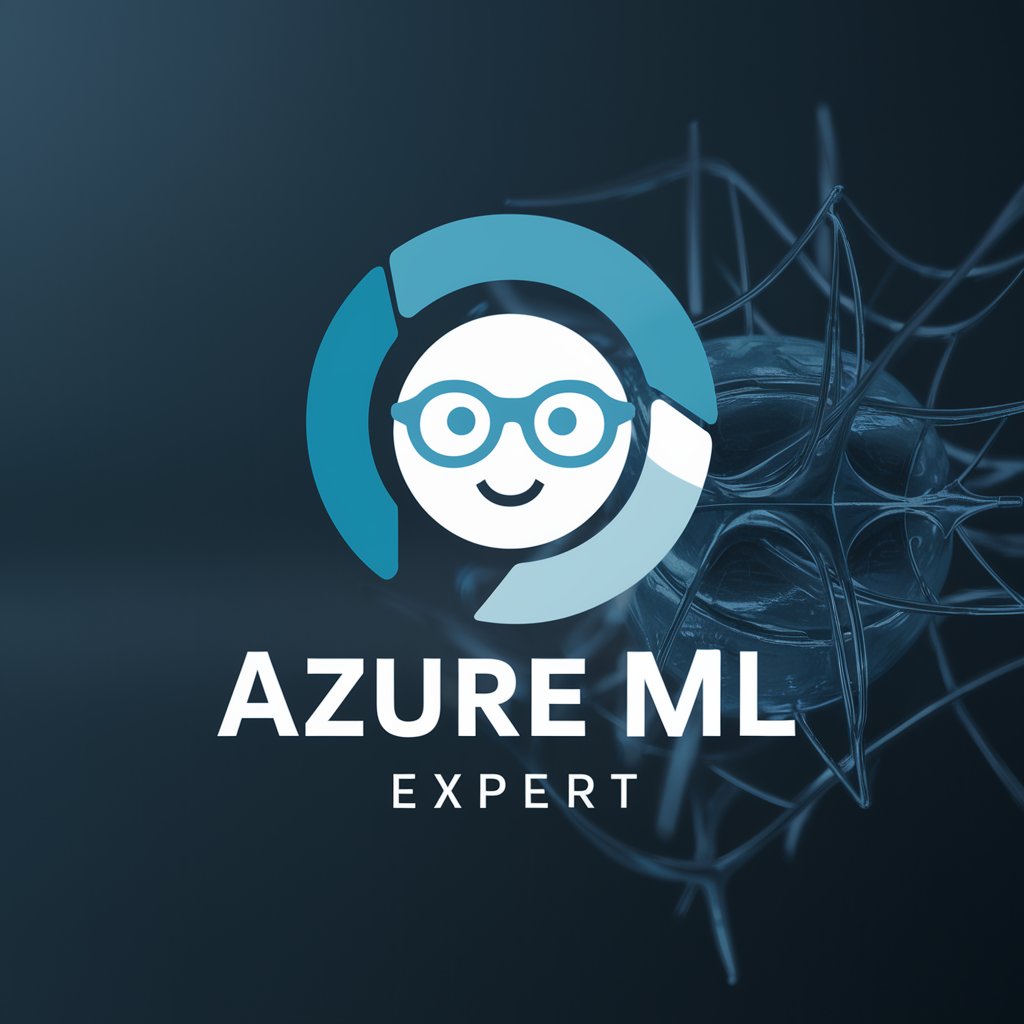
TRADUCTOR INGLES
AI-Powered Language Translation
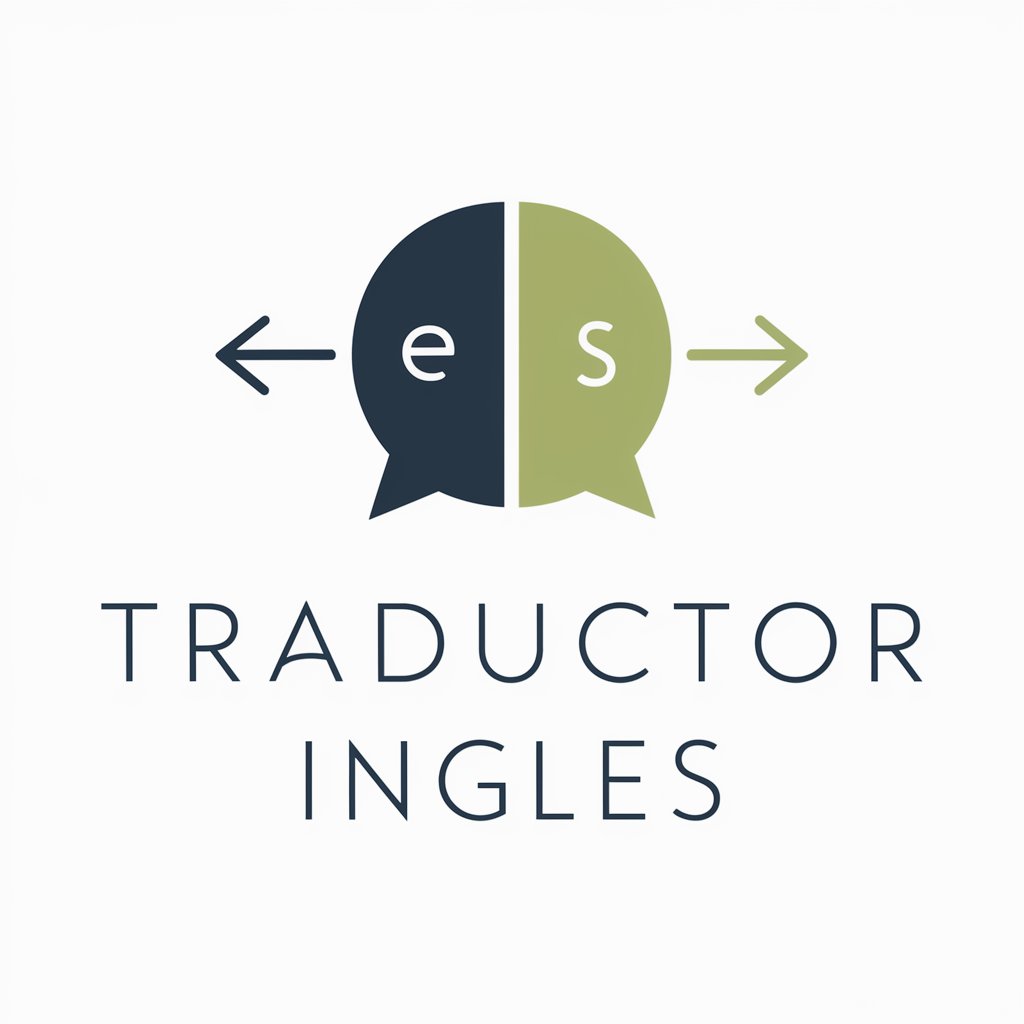
Arty Farty
Craft Your Vision with AI

FireGPT
Illuminate your response with AI-powered insights
UniT3 Studio AI
Unlocking Potential with AI-Powered Insights

Elijah Wood
Enhance Dialogue with AI

Frequently Asked Questions About SEO-GPT
What is SEO-GPT?
SEO-GPT is a specialized AI designed to help optimize content for search engines, using natural language processing to enhance readability and keyword relevance.
How does SEO-GPT improve SEO rankings?
It analyzes existing content to make recommendations for keyword inclusion, phrasing, and structural changes that align with SEO best practices, potentially improving search engine visibility.
Can SEO-GPT help with non-English content?
Currently, SEO-GPT is optimized for English-language content. It is most effective with content that targets SEO principles applicable primarily to English-speaking audiences.
Is SEO-GPT suitable for all types of websites?
SEO-GPT is versatile and can be applied to various types of websites, including ecommerce platforms, blogs, educational sites, and corporate websites.
What are the limitations of using SEO-GPT?
While SEO-GPT can significantly aid in content optimization, the final quality and SEO success also depend on factors like website design, user engagement, and external backlinks, which are outside the scope of SEO-GPT's capabilities.
